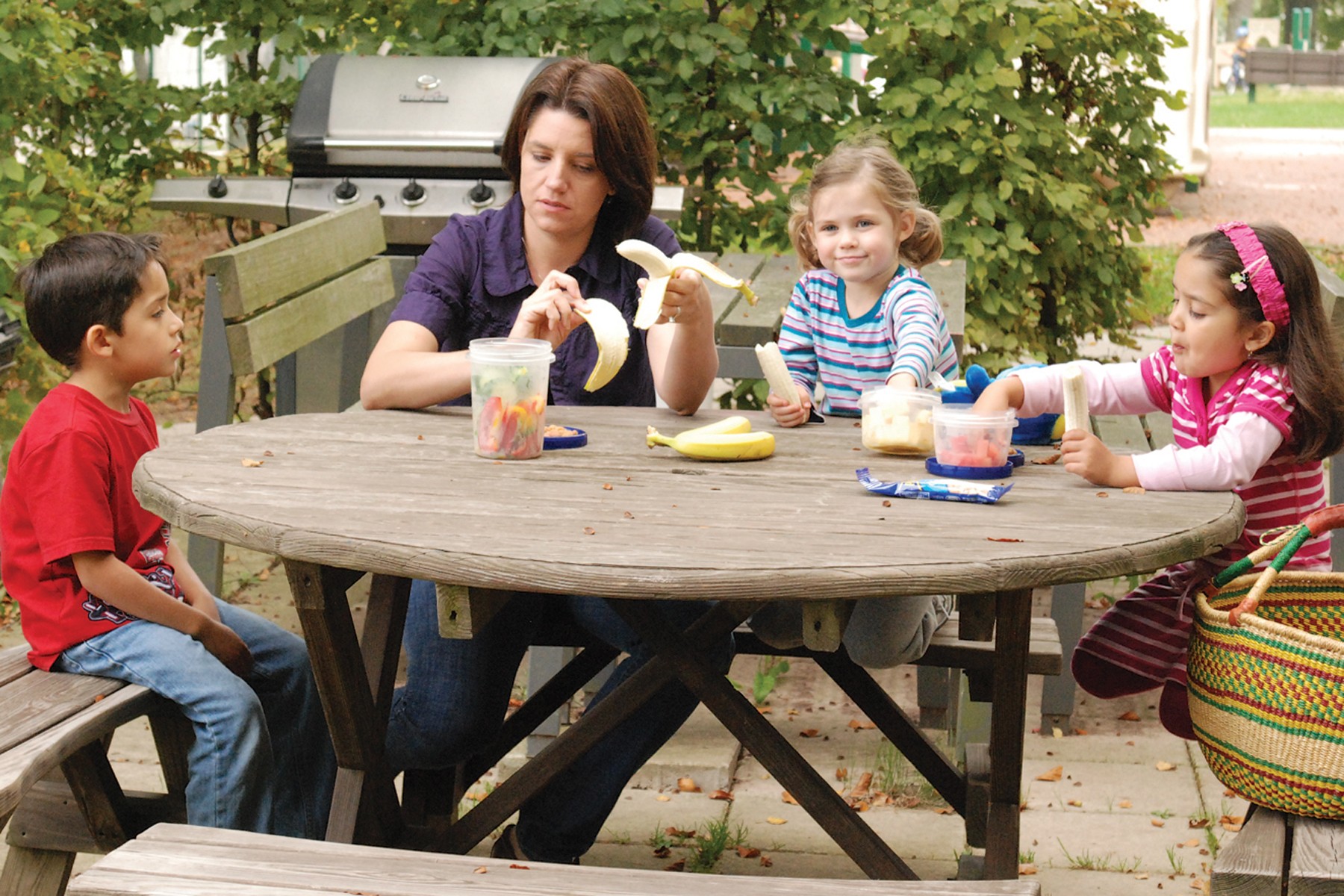
STUTTGART, Germany -- For a military spouse, the long, dark tunnel of deployment is paved with new challenges and responsibilities.
While their service member spouse is away, the husband or wife left behind juggles children, finances, managing the home and work - alone.
Add to this the loneliness of losing a partner and best friend, and the end result can be overwhelming, even traumatic, if the spouse create a support system for themselves.
Military spouses must become more independent during deployments, said Dr. Eric N. Leong, chief of behavioral health for the Stuttgart Army Health Clinic. "They don't have a choice."
Financial decisions can be very challenging, he added, especially if the deployed service member used to manage them.
"They're not used to balancing a budget ... they start using credit for everything," Leong said. "They get into debt."
In addition to money matters, deployments give spouses on-the-job training in doing other things that their service member spouse used to do. They become both mother and father to the children. They fix cars, cook, clean, try to stay in touch with their spouse, and, in some cases, have jobs besides.
"You go through stages of resentment and bitterness - and happiness, because you also know that you can do these things on your own," said Lorraine 'Raine' Flores, a Navy spouse in Stuttgart, who has been apart from her husband for two 6-month deployments and several temporary duty tours.
REACHING OUT
The temporary loss of a partner and co-worker in the home makes outside relationships and involvement vital for spouses coping with a deployment.
For Flores, a mother of two, the hardest part of parenting during a deployment is not being able to bounce ideas off of her partner. "You're not even able to discuss certain things, like child-rearing," she said. "You have to make those decisions on your own."
She found comfort in her friends, whom she considers an extended family.
"Both [deployments], I made a good core group of girlfriends with the same circumstances," Flores said. "You need people. There's no way to get through it without friends."
Without the support of other people, the loneliness can become unbearable.
When Ronda Hayes, a mother of three, whose husband is on a 12-month deployment to Afghanistan, started to feel depressed after her spouse left, she sought help at the mental health clinic and began regular counseling.
Her advice to other spouses facing the same issue is simple: "If you think you're getting depressed, go see somebody. It's not only hard on the spouse; it's hard on the kids and the deployed service member."
The garrison offers free support programs, such as counseling through the Religious Support Office, classes at Army Community Service and Family Readiness Groups.
Kimberly Addison, whose husband is on a year-long deployment to Afghanistan with the 554th Military Police Company started attended FRG meetings and works out with other spouses from the company.
"We're all in the same boat, so we all help each other, especially here in Germany, with no family members to do what an FRG can do for you," she said.
Reaching out spiritually can also help spouses get through deployments, said Leong, the chief of behavioral health. "Belief in a higher power is a powerful thing," he said.
Addison said she feels peace, even though she sometimes worries about her husband's safety. "It's gotten better for me, because I just constantly stay in prayer for him and the company," she said. "It's positive thinking ... I know they're all going to return home safe[ly]."
FOR BETTER OR FOR WORSE
With all of the business at home and down range, working on the marital relationship can be tough to squeeze in.
Long deployments sometimes result in affairs, which contributes heavily to Soldier suicides, Leong said.
However, it's possible to keep the marriage strong, he added, as long as both spouses are emotionally mature. It helps if both support one another, by either managing the home well or calling from down range to express appreciation.
"One of the most important things is to have a lot of trust," added Chaplain (Maj.) David Santiago Cruz, Family Life chaplain for U.S. Army Garrison Stuttgart. "When you're far away, if you don't trust your partner, it adds stress to the relationship."
SUBSEQUENT TOURS
Despite the popular belief that second, third or fourth deployments become easier to deal with, research shows that they do not, Leong said. In fact, they are often harder.
Santiago added: "You don't get used to it. Every deployment is different - they bring different stresses and different challenges to the families and service members."
One Special Operations spouse, who wished to remain anonymous, and who will be referred to as 'Mary' in this article, has been through so many deployments (usually three to four months) that she has had a maximum of five months of uninterrupted time with her husband in their five years of marriage.
"I don't know what's harder," she said, comparing a yearlong deployment (with more time at home afterwards) to constant, shorter deployments.
In Mary's situation, life revolves around deployments. "A lot of time is spent preparing for them to leave or adjusting when they get home," she said. "To actually get a feel for normalcy is difficult."
The danger involved in her husband's job adds another element to the equation: fear.
"I don't know where they go, what city they're in," she said. "The reality is, sometimes it's better that I don't know."
Mary has known service members who have died in battle, and has been the first to comfort a friend whose husband was killed in action.
However, Mary says she has to consciously choose not to dwell on what could happen. "You can't live your life in fear and wonder if, every time someone knocks on your door, it's going to be bad news," she said. "You have to live your life."
For Mary, living life means participating in programs such as Mothers of Pre-School children and church groups.
"You build your life apart from your spouse," she said. "You move on - you have to as a spouse and you have to as a mother."
However, she added, being involved without taking a break can take its toll, making it vital to plan "alone time."
During deployments, Mary utilized the Child Development Center's free child care for spouses of deployed service members. "It was so nice to drop them off and know that they were fed and taken care of," she said.
REINTEGRATION
Sometimes the biggest challenges military spouses face are when the service members return from deployment.
"Expect change," Santiago, the Family Life chaplain, said. "They are going to come back different."
Both service members and spouses may find it difficult at first to re-bond, after becoming so close to their friends and battle buddies.
"[Both] need to allow themselves time to readjust to each other," Santiago said. "Love your spouse enough to give them some space."
The best way for spouses to help their service members regain normalcy is to do fun things together, Leong said. "Try to get them to be friends again ... learn to play together, and enjoy each other's company once again."
Editor's Note: This is the second in a three-part series addressing the emotional affects deployment has on families in the military.

Social Sharing